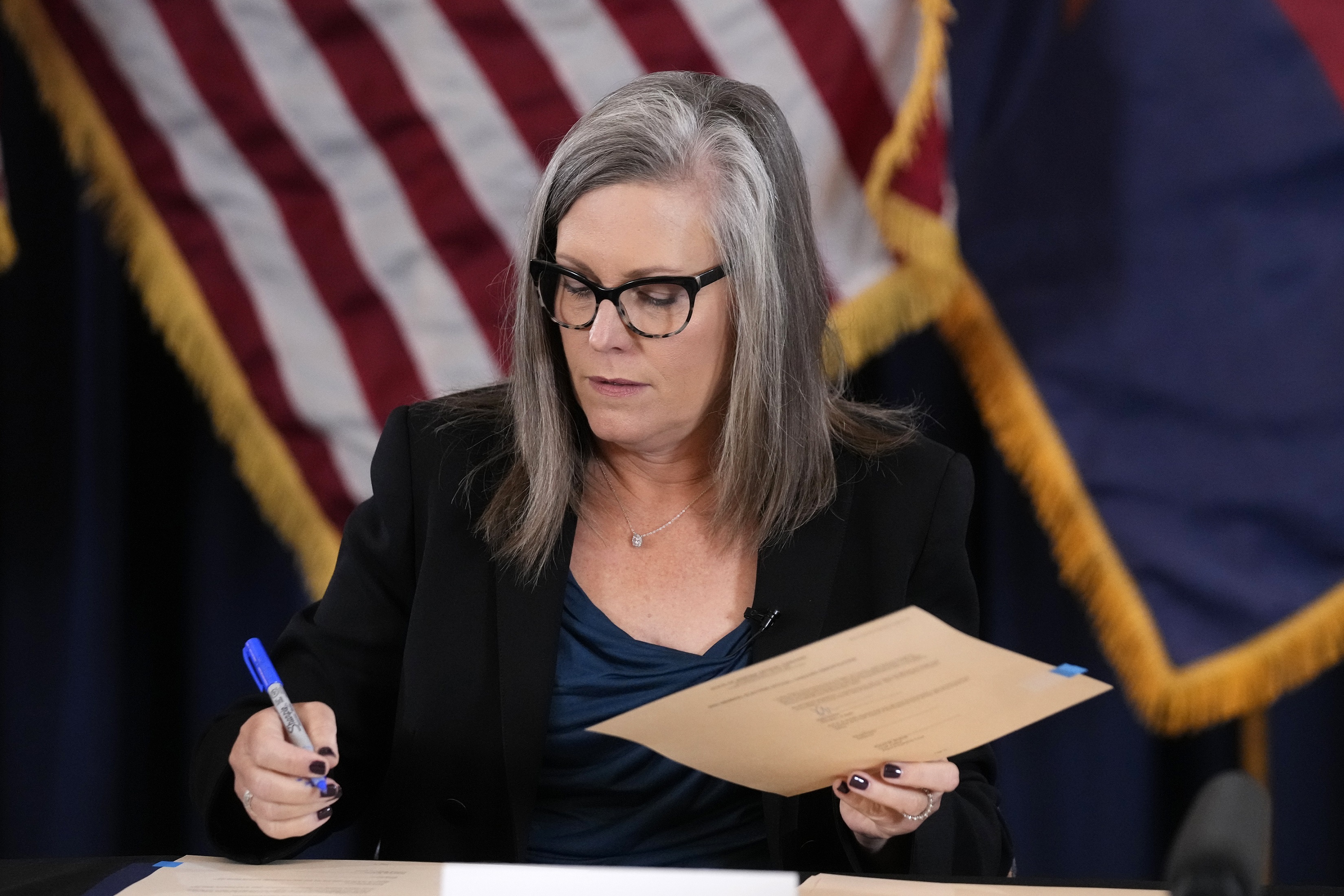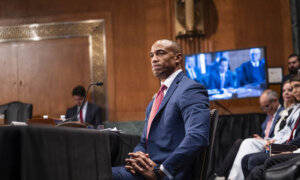Democratic Arizona Gov. Katie Hobbs vetoed Senate Bill 1246 on Tuesday which aimed to extend a transit sales tax of half a cent that has funded transportation projects in the state’s largest county for almost 40 years. While Maricopa residents must vote to again approve the tax, Republican and Democratic lawmakers have failed to reach a consensus on spending the revenue.
The so-called Prop. 400 sales tax was originally approved by Maricopa County voters in 1985. They voted again in 2004 to extend the tax, which is set to expire at the end of 2025. The tax was proposed to help pay for major Phoenix-area infrastructure projects, and has secured freeway projects, bus services, and the light rail system for a burgeoning population.
With their partisan bill to further extend the sales tax, Republican lawmakers aimed to put two questions on the ballot: Voters would be asked whether or not to increase funding for highway projects, and to shift funding from the promotion of such activities as “active transportation” and “air quality” to arterial road construction. If voters approved the second question, the Maricopa Association of Governments (MAG) would also obtain the funding they demand for light rail projects.
Hobbs had warned in advance that she would veto the bill if it landed on her desk, as she continues to seek a bipartisan solution that would also prioritize light rail projects.
Future of Transportation
The veto is part of a battle over the future of transportation in Maricopa County, one of the fastest-growing counties in the United States and home to some 4.5 million Arizonans—or two-thirds of the state’s population. The bill proposed by Republican lawmakers, who control both the House and the Senate, would prioritize investment in the freeway system, preempt bans on internal combustion engines, and limit the expansion of light rail projects.
The Governor disagreed with their assessment, however. “I’m dedicated to continuing Arizona’s economic growth, building and attracting businesses, and creating good-paying jobs for Arizona workers,” Hobbs said in a statement. “This partisan bill does none of those things.”
“I encourage legislators to vote on the compromise supported by a bipartisan majority in the House and Senate, community leaders, and cities in Maricopa County. Stop playing partisan politics, stop holding Arizona’s economy hostage, and put the bipartisan compromise up for a vote,” she added.

The mayors of Phoenix, Mesa, and four other communities in Maricopa County voiced their opposition to the Republican proposal, saying the transportation priorities of the bill’s backers don’t mesh with the realities of a fast-growing county.
Maricopa is the only county in Arizona that must apply to the Legislature for permission to ask their voters to impose a transportation tax.
Last year, the Legislature voted to extend the sales tax, but the proposal was vetoed by Hobbs’ predecessor, Republican Gov. Doug Ducey, who said it was ill-timed because of rampant inflation.
“Rather than mixing vague and controversial projects with real improvements to freeways, major roads, and buses, SB 1246 moves $1 billion from undefined programs to actual road projects and splits continuation of the half-cent sales tax into two questions that voters can consider separately. We ask the governor to join us in putting voters first and choosing smart and responsible spending,” House Speaker Ben Toma said in a statement (pdf) on Friday.
A spokesperson for Senate Republicans said Hobbs’ proposal doesn’t have the bipartisan votes the government claims it does.
“We’re willing to come back to the table to negotiate in good faith, and we will consider all reasonable requests, but we won’t vote on a plan that doesn’t focus the majority of taxpayer dollars towards freeways and roads, which are the transportation options our citizens rely on to get to and from daily,” Senate GOP spokesperson Kim Quintero in a statement, according to The Arizona Republic.
Democratic Senator Mitzi Epstein pointed out the potential benefits of the light rail system. “On the Sen Floor, I pointed out that Light Rail can move 20k people per hour in one street lane, but cars max out at 3k. In dense areas public transit is the wisest, most cost effective choice. Maricopa County is growing fast. It is smart to build for the future now,” she posted on Twitter.














